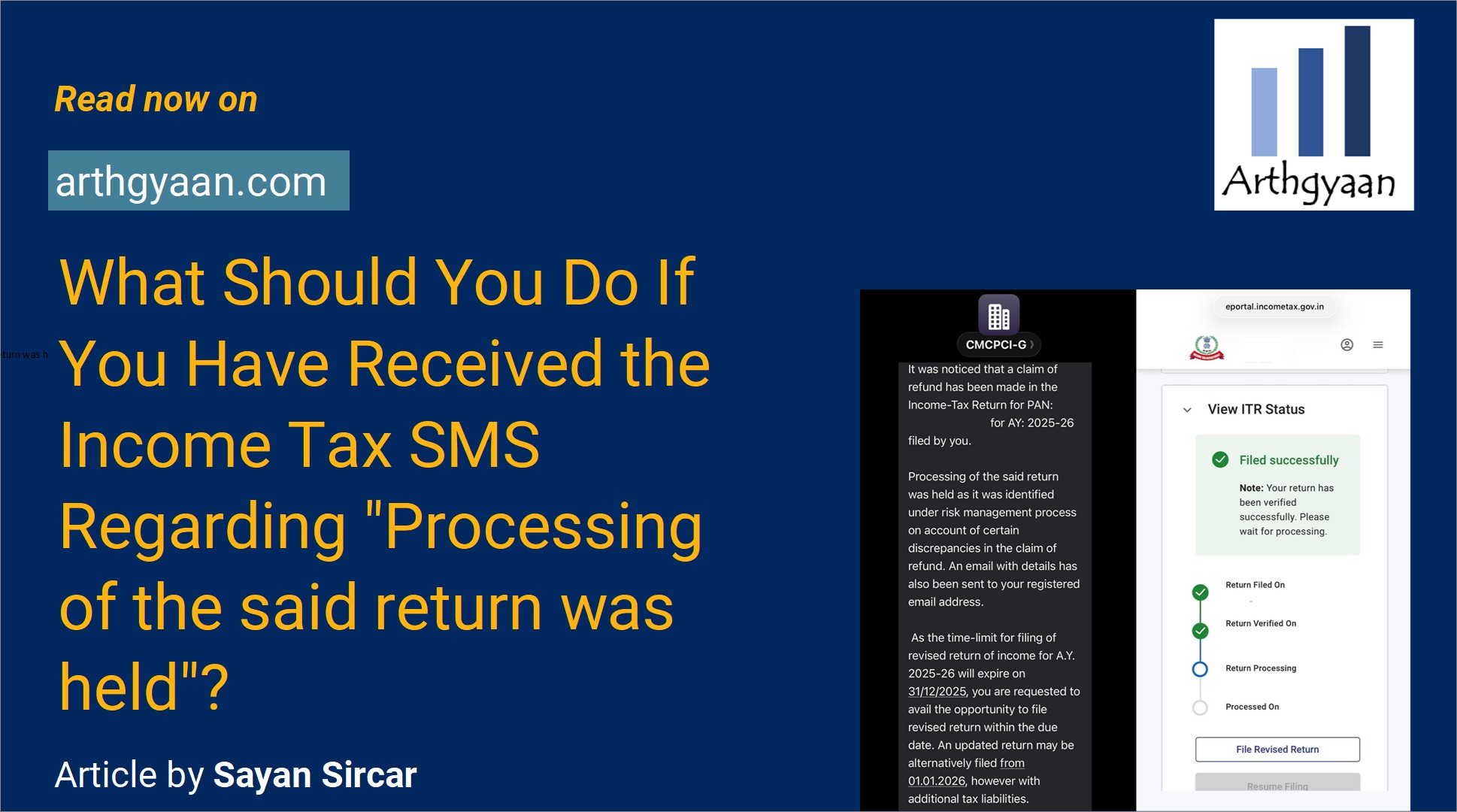What is Deposit Insurance and How Does it Protect Your Money?
This article explains the concept of Deposit insurance that protects bank depositors from losing their money, up to a certain amount, if a bank fails.
This article explains the concept of Deposit insurance that protects bank depositors from losing their money, up to a certain amount, if a bank fails.

Deposit insurance explainer:
The main feature of DICGC insurance is:
Up to ₹5 lakhs per bank is insured per deposit holder
The main features are:
DICGC payout gets triggered usually once the failed bank will get absorbed by another stronger bank or liquidation happens. For example, while the new rules say that DICGC insurance will get triggered in 2 months, there are limited examples of such early payout. Delay in return of investment reduces the final return from the investment. For a 6% FD held for 5 years, the cost of delay looks like this:
| Delay in months | Effective Rate |
|---|---|
| No delay | 6.000% |
| 1 | 5.899% |
| 2 | 5.801% |
| 3 | 5.706% |
| 4 | 5.615% |
| 5 | 5.526% |
| 6 | 5.440% |
| 7 | 5.357% |
| 8 | 5.276% |
| 9 | 5.197% |
| 10 | 5.121% |
| 11 | 5.047% |
| 12 | 4.976% |
| 24 | 4.250% |
| 36 | 3.709% |
| 48 | 3.290% |
| 60 | 2.956% |
As a recent example, Punjab & Maharashtra Cooperative Bank Ltd (PMC Bank) depositors got back their money, up to ₹5 lakhs, in March 2022 while RBI imposed restrictions on withdrawals in September 2019.
From the DICGC website:
| Sl.No. | Bank Type | Count |
|---|---|---|
| 1 | Public Sector Banks | 12 |
| 2 | Private Sector Banks | 21 |
| 3 | Foreign Banks | 44 |
| 4 | Small Finance Banks | 12 |
| 5 | Payment Banks | 6 |
| 6 | Regional Rural Banks | 43 |
| 7 | Local Area Banks | 2 |
| 8 | State Co-operative banks | 33 |
| 9 | District Central Co-op banks | 352 |
| 10 | Urban Co-op banks | 1484 |
| Sl.No. | Bank’s Name |
|---|---|
| 1 | Bank Of Baroda |
| 2 | Bank Of India |
| 3 | Bank Of Maharashtra |
| 4 | Canara Bank |
| 5 | Central Bank Of India |
| 6 | Indian Bank |
| 7 | Indian Overseas Bank |
| 8 | Punjab And Sind Bank |
| 9 | Punjab National Bank |
| 10 | State Bank Of India |
| 11 | Uco Bank |
| 12 | Union Bank Of India |
| Sl.No. | Bank’s Name |
|---|---|
| 1 | Axis Bank Ltd |
| 2 | Bandhan Bank Lilmited |
| 3 | City Union Bank Ltd. |
| 4 | Csb Bank Limited |
| 5 | Dcb Bank Ltd. |
| 6 | Dhanalakshmi Bank Ltd. |
| 7 | Federal Bank Ltd. |
| 8 | Hdfc Bank Ltd |
| 9 | Icici Bank Limited |
| 10 | Idbi Bank Ltd. |
| 11 | Idfc First Bank Limited |
| 12 | Indusind Bank Ltd |
| 13 | Jammu And Kashmir Bank Ltd. |
| 14 | Karnataka Bank Ltd. |
| 15 | Karur Vysya Bank Ltd. |
| 16 | Kotak Mahindra Bank Ltd. |
| 17 | Nainital Bank Ltd. |
| 18 | Rbl Bank Limited |
| 19 | South Indian Bank Ltd. |
| 20 | Tamilnad Mercantile Bank Ltd. |
| 21 | Yes Bank Ltd. |
| Sl.No. | Bank’s Name |
|---|---|
| 1 | Airtel Payments Bank Limited |
| 2 | India Post Payments Bank Limited |
| 3 | Paytm Payments Bank Limited |
| 4 | Fino Payment Bank Ltd |
| 5 | Jio Payments Bank Limited |
| 6 | Nsdl Payments Bank Limited |
| Sl.No. | Bank’s Name |
|---|---|
| 1 | North East Small Finance Bank Ltd |
| 2 | Ujjivan Small Finance Bank Limited |
| 3 | Fincare Small Finance Bank Ltd |
| 4 | Jana Small Finance Bank Limited |
| 5 | Esaf Small Finance Bank Ltd. |
| 6 | Suryoday Small Finance Bank Limited |
| 7 | Capital Small Finance Bank Limited |
| 8 | Au Small Finance Bank Ltd. |
| 9 | Equitas Small Finance Bank Limited |
| 10 | Utkarsh Small Finance Bank Limited |
| 11 | Shivalik Small Finance Bank |
| 12 | Unity Small Finance Bank |
The complete list of banks is here: https://www.dicgc.org.in/FD_ListOfInsuredBanks.html
We are strongly of the opinion that debt investments, especially in the case of bank deposits, is the wrong place to take risk. Risk should be taken with volatile assets like equity, bonds, gold and real estate. Money kept in banks deserve absolute safety and are not the place to chase returns. Most investors who are looking for the safety of banks are doing something fundamentally wrong if they are chasing returns in a safe investment.
In this context, we will cover the concept of SIFI banks. RBI defines SBI, ICICI and HDFC as too-big-to-fail or Systematically Important (SIFI), and investors should stick to them for investment during retirement.
The DICGC is a government-owned corporation that insures deposits in banks up to ₹5 lakh per depositor.
All deposits in banks are insured by the DICGC, except for deposits of foreign governments, central/state governments, inter-bank deposits, deposits of the State Land Development Banks with the State co-operative bank, any amount due on account of and deposit received outside India, and any amount exempted by the DICGC with the approval of the RBI.
Up to ₹5 lakh of your deposit in each bank is insured by the DICGC.
If your bank fails, the DICGC will pay out the insured amount to you within two months.
If your bank fails, you will need to file a claim with the DICGC. You can do this online or by mail. The DICGC will then review your claim and pay out the insured amount to you.

Published: 23 December 2025
6 MIN READ

Published: 18 December 2025
8 MIN READ
1. Email me with any questions.
2. Use our goal-based investing template to prepare a financial plan for yourself.Don't forget to share this article on WhatsApp or Twitter or post this to Facebook.
Discuss this post with us via Facebook or get regular bite-sized updates on Twitter.
More posts...Disclaimer: Content on this site is for educational purpose only and is not financial advice. Nothing on this site should be construed as an offer or recommendation to buy/sell any financial product or service. Please consult a registered investment advisor before making any investments.
This post titled What is Deposit Insurance and How Does it Protect Your Money? first appeared on 15 Oct 2023 at https://arthgyaan.com
Copyright © 2021-2025 Arthgyaan.com. All rights reserved.